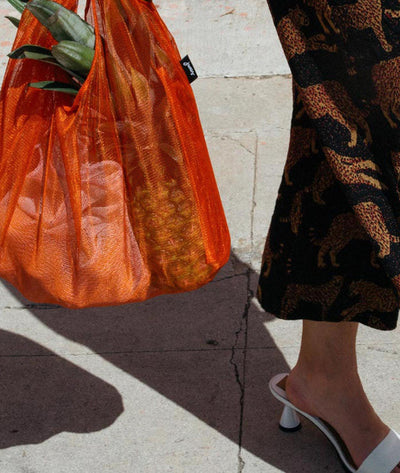Plastic Pollution is a Social Injustice

Environmental activism is social justice. Ecological rights are human rights. We are not separate from our planet. This isn’t just some earth child energy mantra – it’s fact. And it’s why our mission at Junes has always been dual: protecting women and protecting the planet – the two objectives are often separated but in reality, can never be.
If this is the first time you’re considering this idea, let’s back things way up to the concept of disposability and how that disproportionately affects poor and marginalized communities. Reaching a certain income level gives people economic choice – to a certain extent, wealthier individuals can buy what they want, live where they want, and generally have more time and resources to devote to what they want. By contrast, poorer individuals are forced to buy the cheapest products, which in addition to being disposable and manufactured through dirty practices, are often the most dangerous to one’s health either due to harmful chemicals or poor construction. We recognize that something we advocate for ourselves - living a cleaner lifestyle with zero-waste practices - requires time and resources and predicates the financial freedom to make that decision in the first place. 
photo credit: International Institute for Environment and Development
The point of disposal is equally as troubling. Race, income, and zip code far too often dictate access to clean air and water, and perhaps even more troubling, a seat at the table when the decisions to export our pollution to their communities are being made. African American civil rights leader Benjamin Chavis first coined the term “environmental racism” in 1982, which he defined as “racial discrimination in environmental policy-making, the enforcement of regulations and laws, the deliberate targeting of communities of color for toxic waste facilities, the official sanctioning of the life-threatening presence of poisons and pollutants in our communities, and the history of excluding people of color from leadership of the ecology movements.”
It’s no secret that POC, low income, and indigenous communities are more likely to live near major corporate polluters and extractive facilities, such as oil and gas developments, putting them at greater risk for health problems. In the U.S., Black and Hispanic minorities bear a disproportionate burden from the air pollution caused mainly by non-Hispanic whites. This has all come to a head in 2020, as “I can’t breathe” became a battle cry for protest against racially charged police brutality but could just as well be applied to the injustice of the pollutants that trap their communities in unhealthy, dangerous environments. Rampant polluters are at least partially to blame for creating the underlying conditions contributing to increased illness, hospitalization, and death from the COVID-19 virus. It should come then as no surprise that Black, Latinx, and Indigenous populations have once again, been disproportionately affected by the pandemic. The national history of systemic racism that has created the challenges these communities face in any crisis - discrimination, poverty, healthcare access – has also created a physical environment rife with respiratory risks that directly impact disease severity and outcomes.

photo credit: ecoRI News
Even closer to home and our mission, the Carrizo/Comecrudo tribe in South Texas is suffering the effects of being treated as a “sacrifice zone” for pollution and resource exploitation – namely from pipelines, mining, and coal. Along with the environmental degradation and health hazards, the tribe is facing a crisis of missing indigenous women not unlike our sisters in Juaréz. The violence has been linked to the “man camps” that form around the fossil fuel extraction facilities. According to a 2020 report from the International Union for the Conservation of Nature (IUCN), there is clear evidence to suggest that climate change is increasing gender-based violence - where environmental degradation and stress occurs, so does the violence against women. As it turns out, it’s hard to separate a lack of respect for the planet and a lack of care for women’s lives.
Perhaps part of the problem is that when we don’t have to see the effects of our actions, we don’t realize the full extent of the impact. Even when we’re trying to do good – like tossing a container in the recycle bin – there’s a strong chance that bottle is going to end up on a boat to a low-income country with loose (or practically nonexistent) environmental regulations to be burned. In turn, releasing toxic chemicals into the air to be breathed by people who have no say in the matter and lack the resources to fight it. According to the United Nations, low-income countries are most affected by air pollution which tends to be blamed away by poor regulation and lack of infrastructure. But the inconvenient reality is that richer, often whiter, countries like the U.S. are major contributors when they ship their own ecological dilemmas overseas - out of sight and out of mind.

photo credit: The Guardian
But make no mistake: exported pollution is a global problem. While it hits poorer populations “first and worst,” dirty standards were always going to come back to haunt us. And they have.
As Van Jones discussed in his TED Talk “The Economic Injustice of Plastic,” the positive effects of California’s clean air standards have largely been eliminated now that the pollutants from dirty practices in Asia have reached our shores. We’re essentially back where we were in the 70s and we’re at least partially to blame for sending our problems elsewhere.
We’re all increasingly aware that the day of reckoning is upon us. Climate crisis is at the top of every news cycle and thankfully, a top priority of the country’s new administration. The already critical and ever-compounding problem feels insurmountable, but the root of the solution is actually quite simple: when we stop treating people as disposable, we’ll naturally stop trashing the planet too. When we stop exploiting populations of humans, we’ll stop exploiting resources. We can no longer be a throwaway culture. Of anything.
Think about it: in a society focused on the transaction of goods, we have a population filled with underpaid workers, cheap products, and ever-rising pollution. The economic system is linear. But… focusing more on service would give us high quality, made to last products repaired by skilled workers and companies naturally incentivized to recycle for reuse. While outwardly, it seems like a circular economy is mostly designed to benefit the environment, the reality is that it provides the greatest benefit to people at every stage of the process. We can all work to create these loops in our own sectors, but we desperately need drastic change on a global level, led by the very countries wealthy enough to have CHOICE in how they dispose of their waste. Now that the certainties of living on one planet have been realized and we no longer have the option to avoid the repercussions of disposal, perhaps we’ll finally take action on the scale needed for real change.
One concept that has long been in practice, but steadily gaining traction is letting biomimicry guide future development of product and design. The idea being that nature has already figured out how to create many of the things we need using biological processes, cycling resources over and over again. Using the strategies of nature to solve design problems has already created advancements such as the Wright Brothers’ first flying machine heavier than air thanks to studying pigeons, passive cooling systems modeled after termite dens, and swim suits developed through studying shark skin. With the increased appetite for sustainability, there is increased attention to using the principles of biomimicry to design renewable materials to replace finite resources and synthetic pollutants. An example here is our very own BioKnit™ fabric, which was designed to mimic naturally occurring fibers like wool and biodegrade when exposed to the environment. 
 If biomimicry can be thought of as respecting the wisdom of all species, democracy can be thought of as respecting the wisdom of all people. Just as we make the effort to learn from nature, we must do so with a greater diversity of our human population. Including Indigenous voices in conservation efforts has been shown to improve lands’ biodiversity and carbon-capturing abilities. Investments in renewables and outdoor recreation is greatly benefiting communities of color and rural areas, trickling up to having a positive effect on the health and economy of the entire nation. Many attempts to tackle climate crisis are failing because they’re not taking gender issues and inequality into account. Populations who have the economic advantage of choice must recognize that no thing and no one is exploitable or disposable. And they must make the choice to listen.
If biomimicry can be thought of as respecting the wisdom of all species, democracy can be thought of as respecting the wisdom of all people. Just as we make the effort to learn from nature, we must do so with a greater diversity of our human population. Including Indigenous voices in conservation efforts has been shown to improve lands’ biodiversity and carbon-capturing abilities. Investments in renewables and outdoor recreation is greatly benefiting communities of color and rural areas, trickling up to having a positive effect on the health and economy of the entire nation. Many attempts to tackle climate crisis are failing because they’re not taking gender issues and inequality into account. Populations who have the economic advantage of choice must recognize that no thing and no one is exploitable or disposable. And they must make the choice to listen.
So perhaps our mission at Junes isn’t dual at all – it’s repetitive. Fighting for women IS fighting for the planet, and for the sake of all species, we’re glad you’re here to join us.















Leave a comment